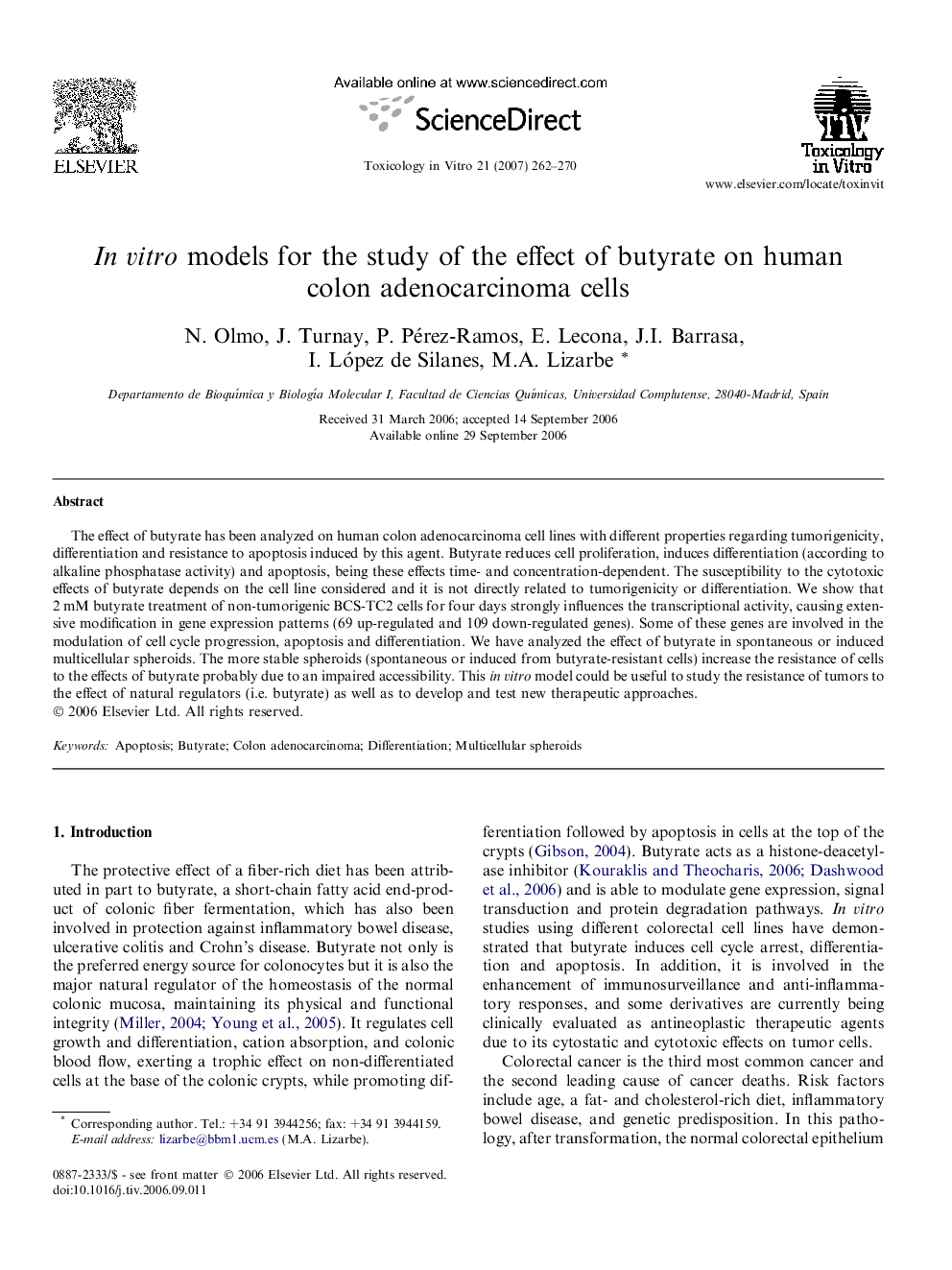| Article ID | Journal | Published Year | Pages | File Type |
|---|---|---|---|---|
| 2603881 | Toxicology in Vitro | 2007 | 9 Pages |
The effect of butyrate has been analyzed on human colon adenocarcinoma cell lines with different properties regarding tumorigenicity, differentiation and resistance to apoptosis induced by this agent. Butyrate reduces cell proliferation, induces differentiation (according to alkaline phosphatase activity) and apoptosis, being these effects time- and concentration-dependent. The susceptibility to the cytotoxic effects of butyrate depends on the cell line considered and it is not directly related to tumorigenicity or differentiation. We show that 2 mM butyrate treatment of non-tumorigenic BCS-TC2 cells for four days strongly influences the transcriptional activity, causing extensive modification in gene expression patterns (69 up-regulated and 109 down-regulated genes). Some of these genes are involved in the modulation of cell cycle progression, apoptosis and differentiation. We have analyzed the effect of butyrate in spontaneous or induced multicellular spheroids. The more stable spheroids (spontaneous or induced from butyrate-resistant cells) increase the resistance of cells to the effects of butyrate probably due to an impaired accessibility. This in vitro model could be useful to study the resistance of tumors to the effect of natural regulators (i.e. butyrate) as well as to develop and test new therapeutic approaches.
